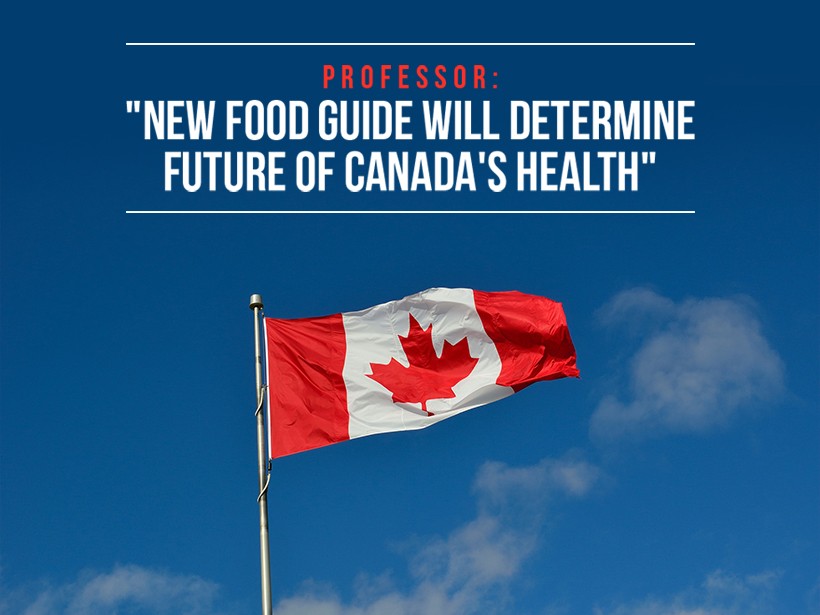Canada's official government nutrition recommendations are getting their first update in a decade; the newest version of the Canada Food Guide will be released this year, and health experts are already speculating how the guide will change the way Canadians eat. One such expert is Dr. David Harper, an associate professor of kinesiology at the University of the Fraser Valley and a visiting scientist at the B.C. Cancer Research Center, who recently penned an op-ed piece for the Vancouver Sun urging Canadian officials to consider the benefits of a low-carb diet before releasing the new guide.
A growing problem in the north
Though most Americans are familiar with the obesity crisis facing the United States, some may not be aware that other countries are facing similar threats to national health. America's neighbor to the north is no exception. According to statistics from the Canadian Obesity Network, 25 percent of adult men and women in Canada are considered to be clinically obese, along with 10 percent of children.1 Obesity in Canada has been found to consume about 4 percent of the nation's overall healthcare budget to the tune of over $6 billion CAD spent annually.1 Dr. Harper, along with other medical researchers and professionals, believes that the key to turning this trend around will lie in the recommendations released in the upcoming update to the Canada Food Guide…and will change the future of the country.
Carbo-loaded Canadians
The professor contends that one contributing factor to Canada's growing problem with obesity is a set of dietary recommendations that place an emphasis on high carbohydrate consumption. For the past 50 years, the Canadian government has encouraged its citizens to consume a diet high in carbohydrates while limiting fat intake.2 Americans can visualize the ubiquitous “food pyramid” that was taught in classrooms during the 90's and early 2000's and has since been retooled to encourage dieters to eat fewer carbs and more fresh vegetables. The Canada Food Guide, however, has not yet been changed to reflect these standards. The current dietary recommendations suggest that Canadian adults consume between six and eight servings of grains a day depending on sex.3
Hope for the future
Dr. Harper argues that Canadian officials should take a cue from the United States and consider the significant body of research supporting the benefits of a low-carbohydrate diet for the longevity of the Canadian public.
“There is now compelling evidence that most Canadians can significantly improve their health by adopting [a low-carb] lifestyle. As robust research indicates, reducing dietary carbohydrate reverses the harmful effects of high-carbohydrate diets…and reduces the incidence and severity of chronic disease.”
One such chronic disease is type II diabetes, which is overrepresented in the Canadian public. An estimated 9.3 percent of Canadians are currently living with type II diabetes, and experts predict that this number will rise to 12.1 percent by 2025.4 Research indicates that this trend can be reversed, however. A “low-carbohydrate diet study conducted at Indiana University…found that 87 percent of [diabetic subjects] were able to reduce or eliminate their need for medication to manage their disease” after adopting a diet lower in carbs.
Will Canadian officials heed Dr. Harper's advice? Only time will tell, but one thing remains certain–both the Canadian public and health experts will be watching closely. Regardless of how the recommendations change, “Canadians can’t afford to wait another 10 years for them to get it right.”2
NUTRITIONAL DISCLAIMER
The content on this website should not be taken as medical advice and you should ALWAYS consult with your doctor before starting any diet or exercise program. We provide nutritional data for our recipes as a courtesy to our readers. We use Total Keto Diet app software to calculate the nutrition and we remove fiber and sugar alcohols, like erythritol, from the total carbohydrate count to get to the net carb count, as they do not affect your blood glucose levels. You should independently calculate nutritional information on your own and not rely on our data. The website or content herein is not intended to cure, prevent, diagnose or treat any disease. This website shall not be liable for adverse reactions or any other outcome resulting from the use of recipes or recommendations on the Website or actions you take as a result. Any action you take is strictly at your own risk.
- Keto Drives Increased Calorie Burn - July 11, 2019
- New High-Protein, Low-Sugar Greek Yogurt Hits Market - April 1, 2019
- Can Going Low-Carb Fight Back Fat? - December 4, 2018































